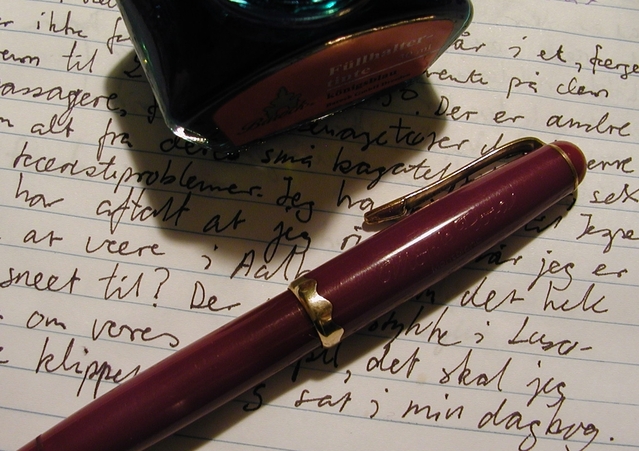What is copyright?
Copyright protects your creative work and prevents others from using it without your permission.
Copyright protection applies to:
- Original literary, dramatic, musical and artistic work, including photography and illustration.
- Sound and music recordings
- Film and TV recordings
- Broadcasts
- The layout of published editions of written, dramatic and musical works.
Copyright stops people from copying your work; distributing copies of it, whether free of charge or for sale; renting or lending.
You can use the copyright symbol to mark your work, followed by your name and the year of creation. For example:
© Farhana Shaikh 2019
However, this isn’t necessary to protect your work as copyright protection is applied automatically – in the UK there is no registration or fee involved. New writers often wonder whether they need to print their manuscripts and post it to themselves, so they can prove the idea is their own. While there is no need to do this, if you are concerned about infringement, it might prove useful evidence.
How long does copyright last?
Copyright protection begins as soon as a work is created. For written and drama work, copyright lasts 70 years after the author’s death. Once a work is out of copyright anyone can use or copy the work.
It is your responsibility as the author to defend your copyright works from infringement. If you are working with a publisher or production company the responsibility of protected infringement will fall on them.
What rights do authors have as the copyright holder?
If you own the copyright in a work you have exclusive rights over how that work is used. As the copyright holder you have the opportunity to sell or licence your works for commercial gain.
The author of a copyright work has the exclusive right to grant or prohibit the following:
- Reproduction – this covers copying the work in any way. For example, photocopying, typing or scanning.
- Distribution – this covers how a book is distributed to the public, through bookselling for example.
- Rental and lending copies of a work e.g. to the public from a library.
- Performance – this covers any aspect of showing or playing a work in public, including a theatre production, or playing sound recordings. Exhibiting a work at a museum is not covered.
- Communication to the public – this includes broadcasting, streaming and making works available on demand online.
- Adaptation – this covers the making of an adaptation of a work, including making a film of a novel, or translating a work into a different language.
Licensing your work
People and organisations who wish to use material that is covered by copyright need to apply for a licence before they use a work, unless exceptions apply (see below). You can check the licence register to find out if anyone has licenced your work.
Registering your work with a licensing body such as a collecting society means they will licence your work on your behalf and collect any royalties you are owed.
A collecting society is usually a not for profit organisation run for and on behalf of their members. In the UK there are several collecting societies including the Copyright Licensing Agency (CLA) and the Authors’ Licensing and Collecting Society (ALCS).
Selling or transferring your copyright
Authors can choose to license the rights in their works or sell/transfer the copyrights in them, the latter is known as an assignment. In either case, when dealing with rights, a written and signed contract is best to avoid any uncertainty.
When a novel is no longer in print, the rights can revert back to the author by arrangement with the publisher.
Exceptions to copyright
There are certain exceptions to copyright which include use for non-commercial research and private study, criticism, review and reporting current events and teaching. These are covered by ‘fair dealing’ and can for example, allow people to quote from copyright works.
In addition to the economic rights which allow an author of a copyright work to exploit their rights for commercial gain, copyright law also provides for moral rights. These cannot be sold or transferred but the author can choose to waive these rights.
Moral rights include:
- The right to attribution – to be identified as the author of a work, for example.
- The right to object to derogatory treatment of a work – this covers alteration to the work that amounts to distortion which may damage the reputation of the author
- The right to object to false attribution – to not be named as the author of a work you did not create.
- The right to privacy of certain photos and films – to ensure that someone who has commissioned a photo can prevent it from being made available or exhibited without your permission – on the photographer’s website, for example.
Author experiences of managing copyright
Emerging writer Divya Ghelani has been published in journals and anthologies. In such instances, it is common for the author to retain copyright while giving the publisher permission to publish the commissioned work. Ghelani is still relatively new to copyright and isn’t sure how to navigate the legal terminology. She says she is concerned about protecting the originality of her ideas and writing especially since work can be shared easily across a number of platforms.
“Many writers write across a range of platforms to make a living so you have to be aware of your rights in each arena,” she said.
Roopa Farooki is the author of six novels, including The Good Children. She admitted she doesn’t know too much about copyright. Farooki’s first four books were published by Pan Macmillan, who were initially assigned copyright. However, when these novels went out of print, her new agent arranged for the rights to revert back to the author. This means that Farooki is now the sole copyright holder and has the option to publish her backlist with another publisher further down the line.
Farooki is also a member of a collecting society.
She said: “I became a member of the ALCS as it was recommended by an article in The Author. I hadn’t realised that membership was free as I was already a member of the Society of Authors. And it’s nice to get a small but regular cheque from them.”
*ALCS is a not-for-profit organisation set up in 1977 to secure fair compensation for the re-use of writers’ works. It is the only society in the UK that collects royalties for authors derived from the photocopying and scanning of books and journals, and broadcast retransmissions for radio plays, TV and film scripts. With over 100,000 members, to date ALCS has paid out £450million worth of secondary royalties to all types of writers.
You can learn more about copyright at:


